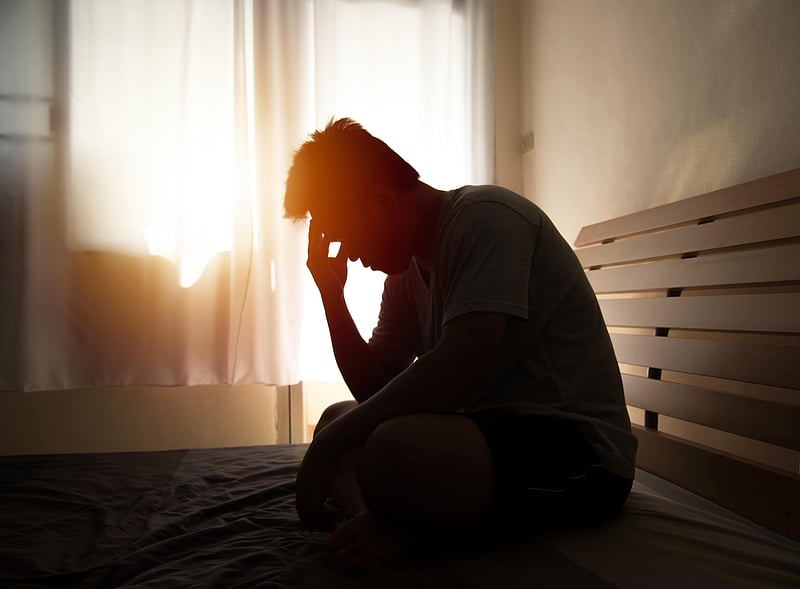Get Healthy!

- Posted May 16, 2023
The Different Types of Depression, Explained
An estimated 5% of adults worldwide suffer from depression, according to the World Health Organization (WHO).
This mental health disorder permeates all areas of life from personal relationships to academic and professional ones and goes well beyond typical mood fluctuations and everyday concerns.
Depression can affect anyone, but individuals who have experienced trauma, significant losses or high stress levels are at greater risk. Women are more prone to depression than men.
This overview will discuss different types of depression, their symptoms and treatments.
Types of depression
According to the Cleveland Clinic, there are several types of depressive disorders, the most serious of which is clinical depression, or major depressive disorder.
The Diagnostic and Statistical Manual of Mental Disorders, published by the American Psychiatric Association, provides a breakdown of the various depressive disorders. They are classified as follows:
- Clinical depression
- Persistent depressive disorder
- Disruptive mood dysregulation disorder
- Premenstrual dysphoric disorder
- Depressive disorder due to another medical condition.
This breakdown will help explain their similarities and nuances.
Clinical depression
Clinical depression, or major depressive disorder, is a debilitating mental health condition characterized by persistent and intense sadness, hopelessness and a loss of interest in previously enjoyed activities.
According to the Mayo Clinic, individuals with clinical depression may experience changes in appetite and sleep patterns, an inability to concentrate, and may contemplate or exhibit suicidal thoughts or behaviors.
"Clinical depression tends not to resolve on its own for very long periods of time," said New York psychiatrist Dr. Gail Saltz, clinical associate professor at Weill-Cornell Medical College. "It can last months to even years, and during that time, it impairs the person's functioning. It can impair functioning at work and relationships, and, of course, it also causes terrible suffering for the person affected."
What's more, she added: "For those with severe clinical depression, as much as 15% will die by suicide, meaning depression can be a deadly disease when untreated. And left untreated [it] makes the likelihood of relapse with depression again later in life, more likely."
Persistent depressive disorder or PDD
Persistent depressive disorder, or PDD, is a chronic form of depression characterized by a persistent low mood and a sense of hopelessness that lasts for at least two years, according to the Cleveland Clinic. Individuals with PDD may experience fluctuating periods of mild to moderate depressive symptoms, disrupting their daily lives and overall well-being.
Symptoms may include loss of interest in previously enjoyable activities, changes in appetite or sleep patterns, low energy, difficulty concentrating and feelings of worthlessness.
Disruptive mood dysregulation disorder or DMDD
Disruptive mood dysregulation disorder, or DMDD, is primarily diagnosed in children and teens, according to the U.S. National Institute of Mental Health. It is marked by severe and recurrent temper outbursts that are disproportionate to the situation and inconsistent with developmental age. Between outbursts, young people may have persistent irritability or anger. DMDD symptoms can significantly impair a child's daily functioning, social interactions and school performance.
Premenstrual dysphoric disorder or PMDD
Premenstrual dysphoric disorder, or PMDD, is a cyclical mood disorder characterized by severe emotional and physical symptoms in the days before menstruation, according to Johns Hopkins Medicine. During this time, women may experience intense mood swings, irritability, sadness, anxiety and a sense of hopelessness.
Depression due to a medical condition
Tufts Medical Center describes depressive disorder due to another medical condition as a depressive episode caused by an underlying medical condition. This condition could be a chronic illness, neurological disorder, hormonal imbalance or related to substance abuse. The exact cause is typically unknown, however. While symptoms can be similar to those of major depressive disorder, they are specifically linked to the physiological effects of the underlying medical condition.
Treatments for depression
Many options exist to help individuals manage symptoms and enhance their quality of life, according to a report on InformedHealth.org, a German government health site referenced by the U.S. National Center for Biotechnology Information. Treatments encompass several approaches, including medications, therapy and lifestyle changes. Meds such as antidepressants can be prescribed to alleviate symptoms, while therapy, such as cognitive-behavioral therapy (CBT), can help address negative thought and behavior patterns.
Lifestyle changes such as regular exercise, adequate sleep and a healthy diet can complement other treatments and promote overall well-being. The specific treatment choice depends on the severity of symptoms and guidance from health care professionals.
Seek help if needed
Depression is an illness that involves the brain, according to the U.S. Department of Health and Human Services. Even mild depression can become more serious if it's not treated. That's why it's important to reach out for help and support. You can speak to your doctor, who may refer you to a mental health professional for medicine or talk therapy.
With various treatment options available, including therapy, medication and support networks, a qualified health care provider can point you to the best course of action for your situation. Remember, you are not alone.



